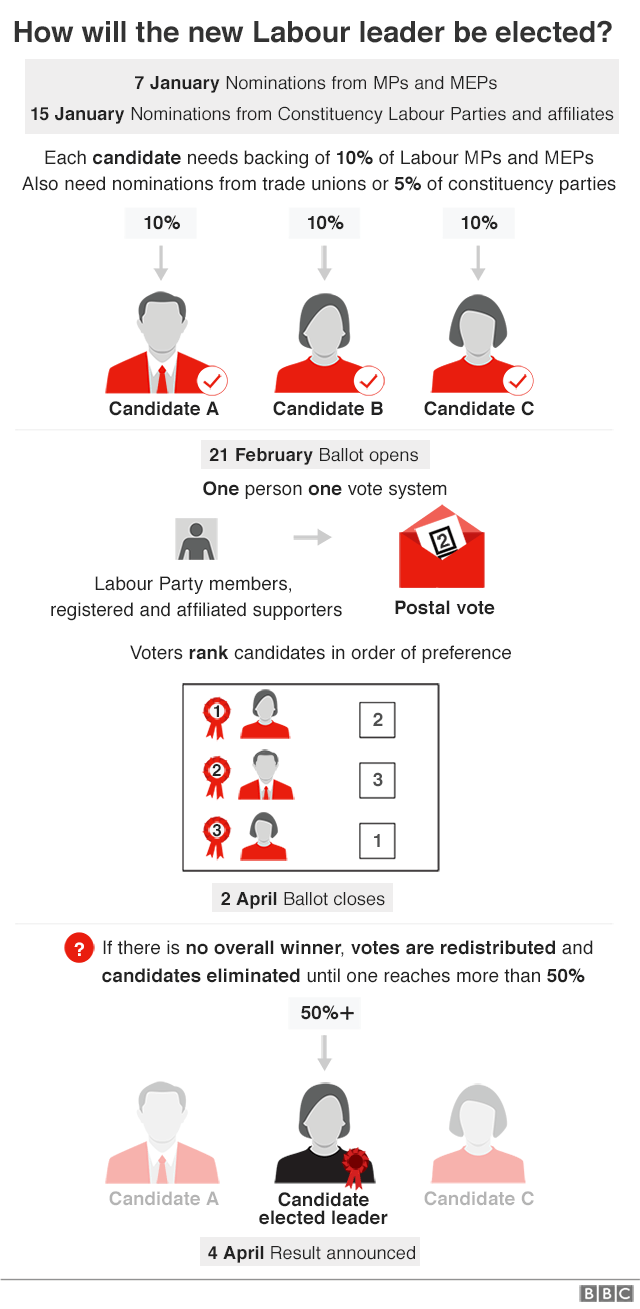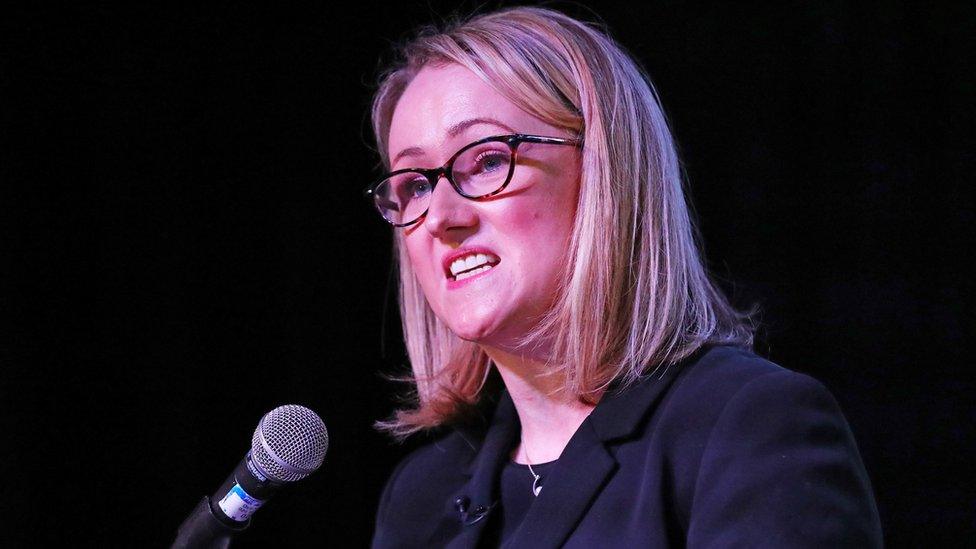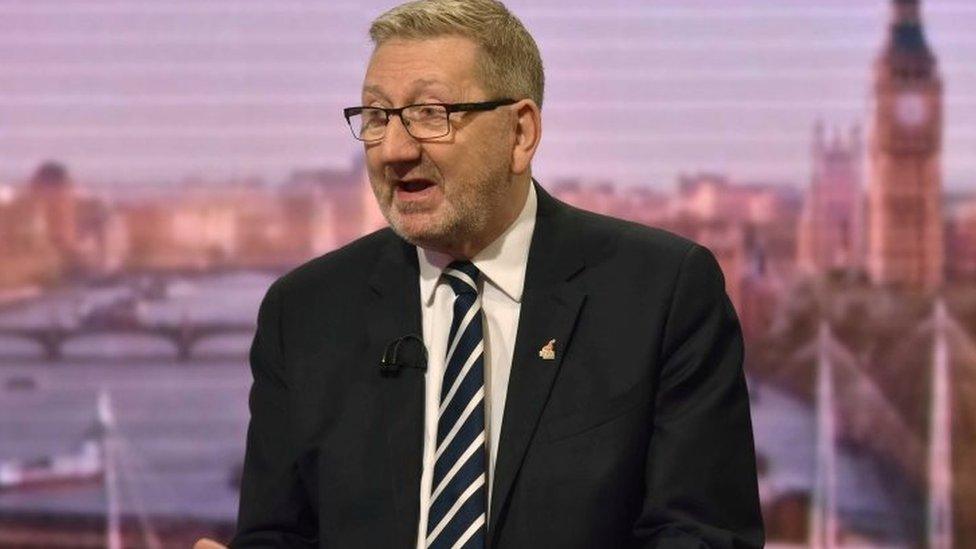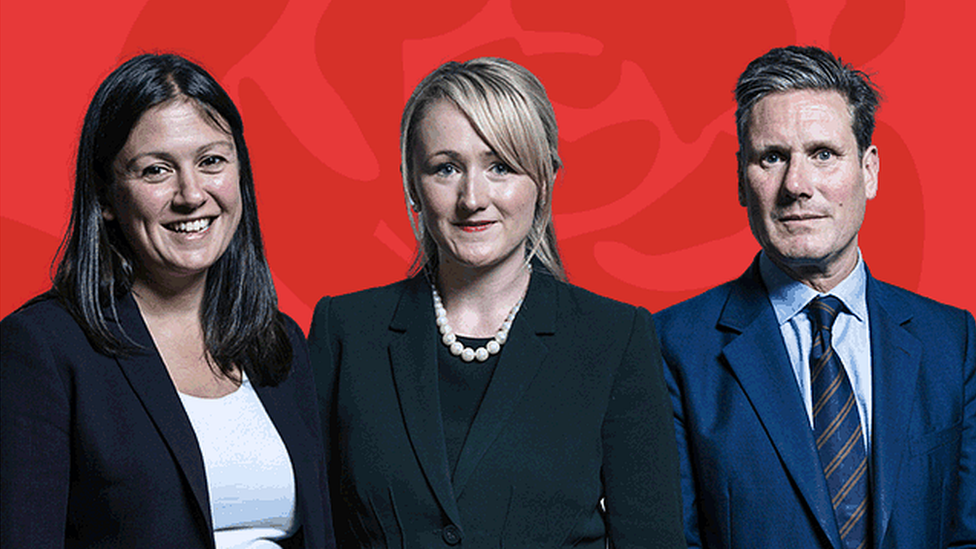Labour leadership: Starmer urges end to Westminster power 'monopoly'
- Published
- comments
Sir Keir Starmer: "The government hasn't really got a clue"
Britain needs a radical redistribution of wealth and opportunity and an end to the "monopoly of power" in Westminster, Sir Keir Starmer has said.
Ahead of a speech, the Labour leadership candidate argued that goal could be reached with a system "built on the principle of federalism".
Returning to campaigning after a week's break, he also promised to address the "underlying causes" of Brexit.
So far, Sir Keir and Lisa Nandy have places on the final members' ballot.
Shadow business secretary Rebecca Long-Bailey and shadow foreign secretary Emily Thornberry are vying to secure enough nominations to reach the last stage of the race to succeed Jeremy Corbyn.
Mrs Long-Bailey has also called for parliaments in Scotland and Wales to be as "autonomous and independent" as possible, but not going as far as mentioning federalism.
Speaking at an earlier hustings, she said: "When we devolved power to Scotland and Wales they were never meant to be a satellite government with Westminster being the king and them being servile under the bottom. They were meant to be on an equal footing. That's what we need to push forward for."
While the devolved parliaments in the UK are still ultimately controlled by central government in Westminster - meaning the Commons could repeal the law that allows for their existence in the first place - federalism would give the governments equal power with SW1.
'Experience and vision'
Sir Keir gained a further nomination on Monday from the union Community, which also announced it was backing Angela Rayner for deputy leader.
General secretary Roy Rickhuss said Sir Keir's "experience and vision are what the Labour Party needs to rebuild, win back the trust of voters, and lead a transformative Labour government".
Sir Keir - the shadow Brexit secretary - is setting out his vision for a "new political consensus".
At a speech in East London later, he will argue for the need to "empower people to have a real say in their workplace, in the communities they're part of and over the public services they use".
He told BBC Radio 4's Today programme this would "address underlying causes and reasons" behind the Brexit vote, arguing one of the main drivers was people wanting "power and influence and decision making closer to them".
Sir Keir - who was a prominent advocate for Remain - said he was "making the case for the future of the United Kingdom with a different political consensus, where we devolve that power and opportunity and wealth away from Whitehall and Westminster".
He also warned not addressing these issues would mean "we are at risk of watching the break-up of the United Kingdom" and "we leave a vacuum" for nationalism to take hold.
But Sir Keir said it was not about whether he supported Brexit or not, adding that when the UK leaves the bloc on Friday, "that debate is over".
Who decides on the next Labour leader?
The Holborn and St Pancras MP suspended his campaign last week after his mother-in-law was involved in a serious accident last week.
This week he will travel to constituencies in England, Wales and Scotland to hear people's views.
He will also unveil his ideas for how Labour can reflect the experience and skills of all parts of the party.
Unite view
The new Labour leader and deputy leader will be announced on 4 April.
On Friday, the Unite trade union confirmed it would endorse Mrs Long-Bailey for leader.
Unite's general secretary Len McCluskey said the Salford and Eccles MP had "the brains and the brilliance" to take on Boris Johnson.
Asked on Today whether he thought Sir Keir's proposals would appeal to Brexit-backing Labour supporters, Mr McCluskey said: "Clearly Leave voters wanted something different from what they have had for the past couple of decades [but] I am not sure constitutional change was upmost in their mind."
He said there will be a need to ensure "power is rested away from Westminster", but the answer now was to "invest in our communities" to improve wages, job security and public services.
Mr McCluskey added: "They have been starved for a decade now, hurt by austerity."
To make the final ballot, hopefuls need the support of three unions and affiliate groups representing 5% of the membership, or 33 local branches.
Having already been nominated by bakers' union BFAWU, Unite's support for Mrs Long-Bailey means she needs just one more union or affiliate by the 14 February deadline.
Mr McCluskey said "all of the candidates are capable of uniting the party", but Mrs Long-Bailey was "the best placed".

- Published24 January 2020

- Published26 January 2020

- Published18 February 2020
